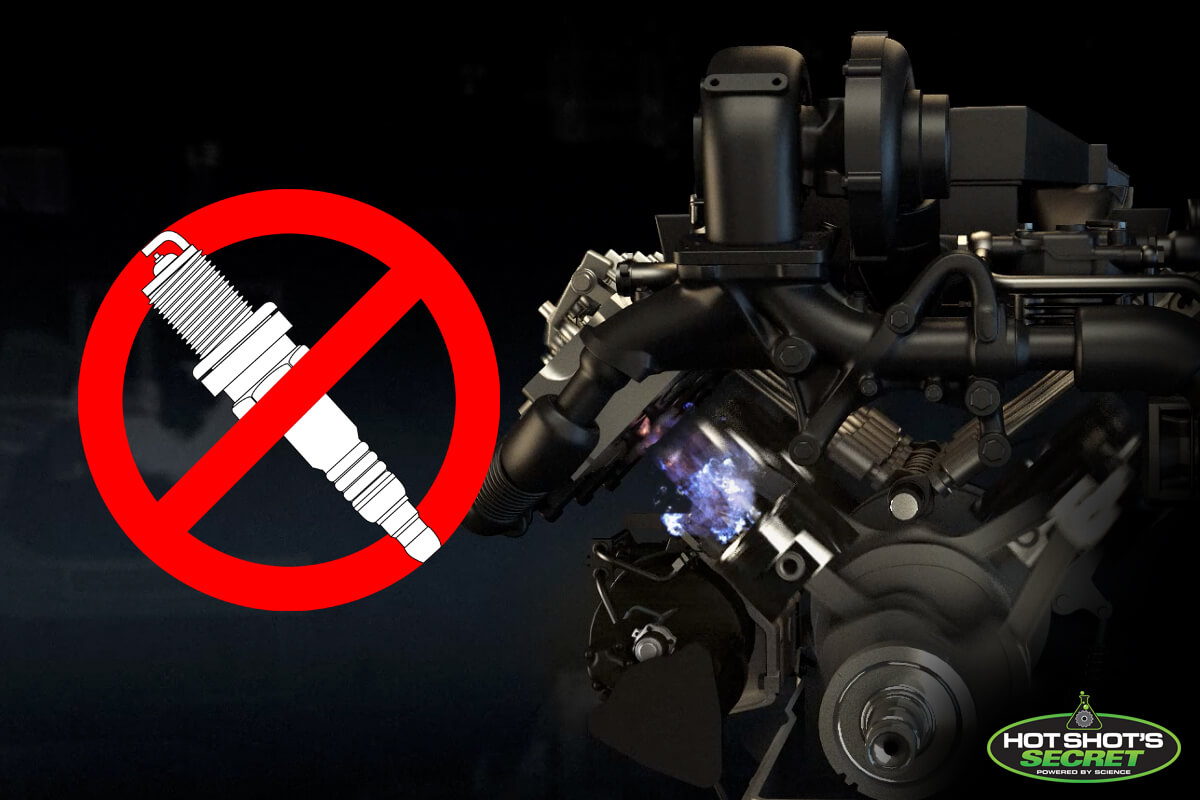Diesel engines don’t use spark plugs. They work differently from gasoline engines.
Diesel engines rely on compression to ignite the fuel. In a diesel engine, air is compressed to a high pressure, which heats it up. When diesel fuel is injected into this hot air, it ignites. This is different from gasoline engines, which use spark plugs to create a spark that ignites the fuel-air mixture.
Understanding this difference helps explain why diesel engines are often more efficient and durable. This blog will explore the science behind diesel engines and why they don’t need spark plugs. You’ll learn how diesel engines operate and the benefits of this unique ignition process. Let’s dive into the fascinating world of diesel engines.

Credit: dfcdiesel.com
Introduction To Diesel Engines
Diesel engines were first developed in the late 19th century. These engines are named after their inventor, Rudolf Diesel. Diesel’s idea was to create a more efficient engine than the gasoline engine.
In 1897, Rudolf Diesel built the first working diesel engine. It was much more efficient than other engines of that time. Diesel engines quickly became popular. They were used in ships, trucks, and trains. Today, they are found in many machines.
Diesel engines do not use spark plugs. Instead, they use compression to ignite the fuel. This makes them more efficient. Diesel engines also produce more power. They are known for their durability. These engines last longer than gasoline engines.

Credit: www.hotshotsecret.com
Fundamentals Of Spark Plugs
Spark plugs ignite the fuel-air mixture in petrol engines. They create a spark. This spark starts the combustion process. Diesel engines work differently. They do not use spark plugs. Instead, they rely on high pressure. This pressure causes the air to heat up. The hot air ignites the fuel.
Petrol cars use spark plugs. Motorcycles also have spark plugs. Lawn mowers need them too. Diesel engines do not use spark plugs. Trucks, some cars, and large machines have diesel engines. They use compression to ignite the fuel.
Combustion Process In Diesel Engines
Diesel engines use air compression to create heat. The air is squeezed tightly. This makes it very hot. The heat is important. It helps ignite the fuel. No spark plug is needed here.
Fuel injection happens after the air is compressed. Fuel is sprayed into the hot air. This causes an explosion. The explosion moves the engine parts. This is how the diesel engine works.
Role Of Compression Ignition
Diesel engines use compression ignition. This means they don’t need spark plugs. Air gets compressed inside the cylinder. The pressure becomes very high. This high pressure heats the air a lot. Fuel is then injected into the hot air. The fuel ignites on its own.
The compression process generates a lot of heat. The heat is enough to ignite the fuel. Spark plugs are not needed for this process. Spark plugs are used in gasoline engines. Diesel engines rely on heat from compression.
Why Diesels Don’t Need Spark Plugs
Diesel engines work differently from gasoline engines. They do not need spark plugs. Instead, they use a direct ignition process. Air gets compressed inside the cylinder. This compression makes the air very hot. When diesel fuel is injected into this hot air, it ignites. This process is called compression ignition. It is one reason why diesel engines are very efficient.
Diesel engines are known for their high efficiency. They convert more fuel into usable energy. This means better fuel economy. Diesel engines also produce more torque. This makes them strong and powerful. They are often used in trucks and heavy machinery. Diesel engines last longer too. They are built to handle high pressure. All these factors make diesel engines a popular choice.
Advantages Of Diesel Engine Design
Diesel engines are more fuel-efficient than gasoline engines. They use less fuel for the same distance. This means you save money on fuel. Diesel fuel has more energy. More energy means better fuel economy. Diesel engines also have higher compression ratios. Higher compression ratios improve efficiency.
Diesel engines last longer than gasoline engines. They are built to be tough. These engines handle high pressure. They do not wear out easily. Diesel engines need fewer repairs. Fewer repairs save money. They also have strong parts. Strong parts mean they run well for many years.
Common Misconceptions
Many think diesel engines need spark plugs. This is not true. Diesel engines use compression to ignite fuel. No spark plug is needed. This is a big difference from gasoline engines. People often get confused about this.
Diesel engines are more efficient. They use fuel better. This makes them popular. Many trucks and buses use diesel engines. They also last longer. Diesel engines are strong and reliable. This is why they are used a lot.

Credit: www.quora.com
Future Of Diesel Technology
Diesel technology is changing fast. New engines are more efficient. They use less fuel and produce more power. Advanced filters help reduce pollution. Hybrid diesel engines are also being developed. These engines combine diesel and electric power. They offer better fuel economy. Smart technology in engines helps with real-time adjustments. This makes engines run smoother and cleaner. Biofuels are another trend. They are made from plants and waste. They are cleaner than regular diesel. Engine materials are also improving. New metals and coatings make engines last longer. These trends make diesel engines better for the future.
Diesel engines are getting cleaner. New regulations push for lower emissions. Advanced filters capture more pollutants. Low-sulfur diesel is now common. It burns cleaner. Alternative fuels like biodiesel are used more. They produce less pollution. Engine improvements also help. Better combustion means fewer emissions. Hybrid diesels use less fuel. They pollute less. Electric components in engines help too. They reduce the load on the engine. Recycling of old engines is important. It reduces waste. These steps help make diesel engines better for the environment.
Conclusion
Diesel engines don’t use spark plugs. They rely on compression ignition instead. This method is more efficient. It provides better fuel economy and power. Diesel engines are great for heavy-duty tasks. They are durable and last longer. No spark plugs mean fewer parts to replace.
Understanding this can help with engine maintenance. Diesel engines are reliable and efficient choices. They work differently, but the benefits are clear.
